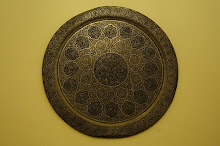 The traditional view of Iran, that of an irrational and hatemongering monolithic regime pining at any opportunity to harm its enemies, is one which has become widely accepted and unquestioned in the West. Over a generation of experts, academics, and policy-makers - some with relatively little firsthand knowledge of Persian culture - have inherited and continue to perpetuate the vilifying clichés and rhetoric that constitute the brick and mortar of a conflict that very few people understand.
The traditional view of Iran, that of an irrational and hatemongering monolithic regime pining at any opportunity to harm its enemies, is one which has become widely accepted and unquestioned in the West. Over a generation of experts, academics, and policy-makers - some with relatively little firsthand knowledge of Persian culture - have inherited and continue to perpetuate the vilifying clichés and rhetoric that constitute the brick and mortar of a conflict that very few people understand. The cornerstone of the West’s strategy in confronting Iran has always been to contain and punish it through the use of sanctions and diplomatic isolation, while waging covert actions in the shadows where Iran’s allies and agents are said to be also continually operative.
Despite periods of brief détente and cooperation on tactical issues, notably after 9/11, both sides have never been able to fully bridge the chasm of misunderstanding that divides them. Now, with Iran on the cusp of becoming a nuclear power, this conflict threatens to escalate to dangerous new heights as Israel – with or without the backing of the United States – stands poised to intervene militarily to deny the Iranians a nuclear capability.
Few people (including most Iranians) will deny that many of the ruling elites and organs of the Iranian state manifest extreme religious and ideological positions that are antagonistic towards the West. But in much the same way that an American would tell an Iranian who’s never experienced America that the United States is quite a lot more than someone’s idea of a “Great Satan”, Iran is also more welcoming, tolerant, diverse and sophisticated than the bleak unchanging image presented to us on the nightly news, or by our own blinkered politicians.
Indeed, at the political and other levels, if one is willing to look closely enough, there is an obvious dissonance between our perceptions of one another, and what may in fact be a more complex reality.
This in turn begs a number of questions:
1. How much of the Iran-West conflict (or any other conflict) is the result of limitations in our cognition that we as humans are naturally subject to, and are not even aware of?
2. Could the character and actions of Iran be seen through different lenses, which could help to free us from the myopic viewpoint to which we are today seemingly condemned?
3. If so, could an understanding of these subtler factors also constitute an important key towards the resolution of a long and unnecessary conflict which may yet have devastating consequences for the Middle East and for the world?
In the case of relations between Iran and the West, for example, we would like to put forward the idea that the conflict, although encompassing real issues, is also an ongoing drama involving and demonstrating flawed human cognition on multiple levels.
The West’s understanding of Iran and the dangers that it poses is more of an imaginary or psychological construct, than a true reflection of reality – and is one which gets in the way of amelioration of the conflict. The West’s inability to properly understand Iranian culture and its failure to appreciate that its own largely reactive, conditioned, and ritualistic posture of hostility towards Iran, elicits and compels Iran towards certain behaviours that then further reinforce our generalized misperceptions of Iran being a rogue.
We will be exploring these ideas further in our next series of posts.













No comments:
Post a Comment